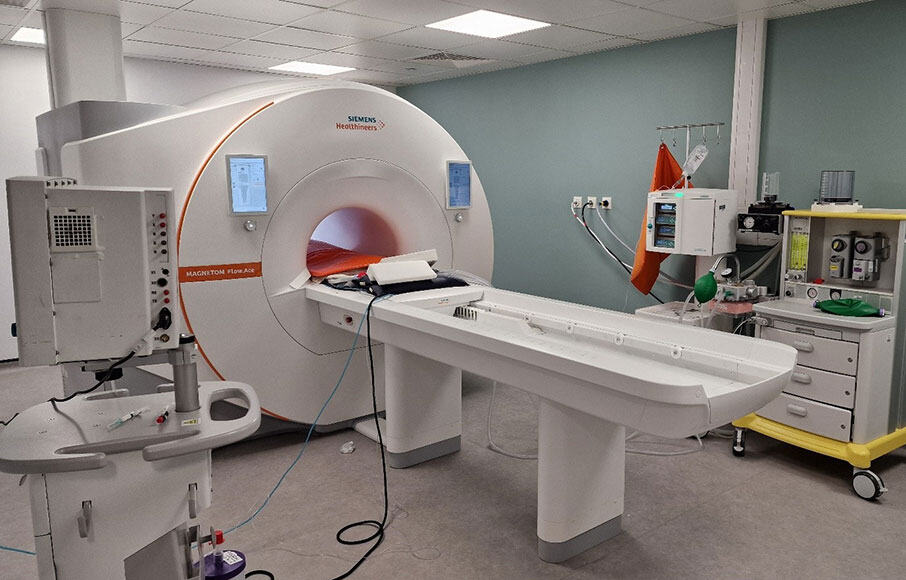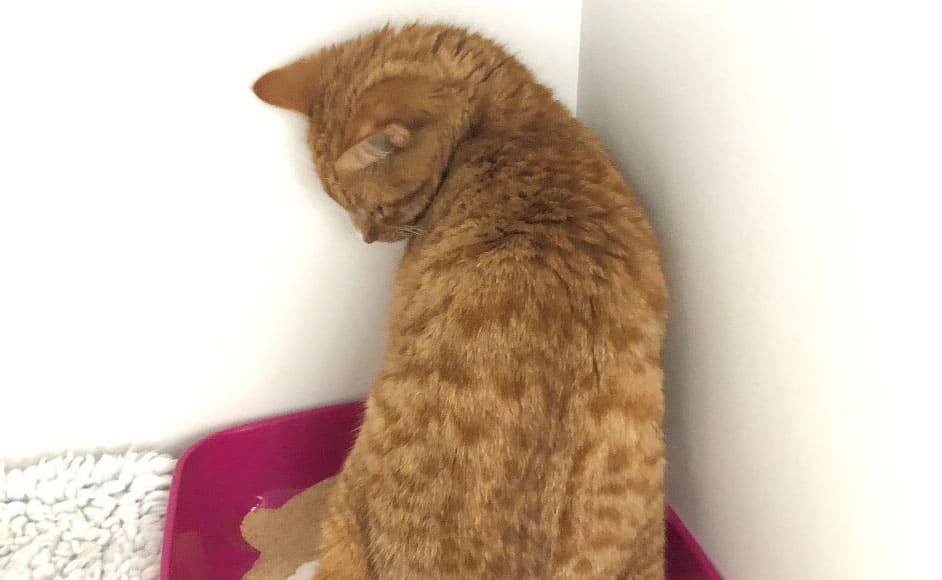For many years cats diagnosed with feline infectious peritonitis (FIP) have had a grave prognosis. However, in 2021 two medications became legally available in the UK to treat the disease. In this Q&A Callum Patterson of the Pines Veterinary Clinic asks Sam Taylor, Feline Specialist at Lumbry Park about the new drugs.

PICTURED LEFT TO RIGHT: CALLUM PATTERSON, VETERINARY SURGEON; SAM TAYLOR, INTERNAL MEDICINE SPECIALIST
Clinical Q&A – FIP in cats: finding your way around the novel treatments
with Sam Taylor, Internal Medicine Specialist, and Callum Patterson, veterinary surgeon at Pines Veterinary Clinic in Maidenhead
Callum: A young cat presents with protein-rich ascites and pyrexia. It has a positive PCR for feline coronavirus (FCoV) on the fluid and you make a presumptive diagnosis of FIP. The owner has read about treatments online, what should we be advising?
Sam: It is a very exciting time for the treatment of FIP. Whilst black market drugs have been around for some time, we now have legal efficacious medications via a specials manufacturer. Vets must not be involved in the use of illegally imported drugs but we can advise and administer remdesivir and GS-441524 (nucleoside analogues) obtained legally. We are currently recommending starting with 1-2 weeks of remdesivir injections (SC, although can be initially IV if the cat is very unwell) followed by oral GS-441524 tablets taking treatment up to 12 weeks (all being well). See ISFMFIP protocol for the complete protocol and doses. Exclusively oral protocols have also been used and seem to be effective, but more data are needed.
Callum: What factors should be considered when choosing to use the novel treatments?
Sam: Treatment is expensive and prolonged, so finances, commitment and cat friendly handling principles need to be discussed. Most owners can be shown how to give the remdesivir injections, but they could also be given at the clinic. Owners need to understand that whilst the treatment is effective, it is not 100% and relapse is possible, which can be upsetting. However, we are seeing complete and durable responses with cats being cured.
Callum: What response should we expect during the treatment and what do we monitor?
Sam: Most cats will respond rapidly, within in a few days. There is a low risk of transient worsening of pleural effusion necessitating drainage – this then improves in most cases. Pyrexia should resolve and appetite improve in 2-3 days. Effusions should have resolved within around 2 weeks or a dose increase may be needed. Blood-work abnormalities can be monitored (e.g. hyperglobulinaemia) and should again resolve in a few weeks and certainly be normal at 6 weeks and 2-4 weeks before stopping therapy. The level of monitoring will depend on finances and clinical condition, but re-checking body weight is important as weight should increase as they improve or grow, and this can result in the mg/kg dose dropping. Generally, a re-check after 1-2 weeks, bloods at 6 weeks and again 2-4 weeks before considering stopping therapy. Importantly, there is no need or benefit in monitoring serum FCoV antibodies which can remain present and even at high levels for many months after exposure to coronavirus alone.
Callum: What side effects have been seen with remdesivir and GS-441524?
Sam: Relatively few. Pain on injection of remdesivir (see above link for tips on reducing), mild elevations in ALT and after IV injection cats can seem nauseated for a few hours. All adverse reactions should be reported to the specials manufacturer so they can keep a record, but the treatments seem well-tolerated.
If you have a case of FIP that you want to ask advice on, you can contact the FIP advice email manned by feline specialists at [email protected] or Lumbry Park.




